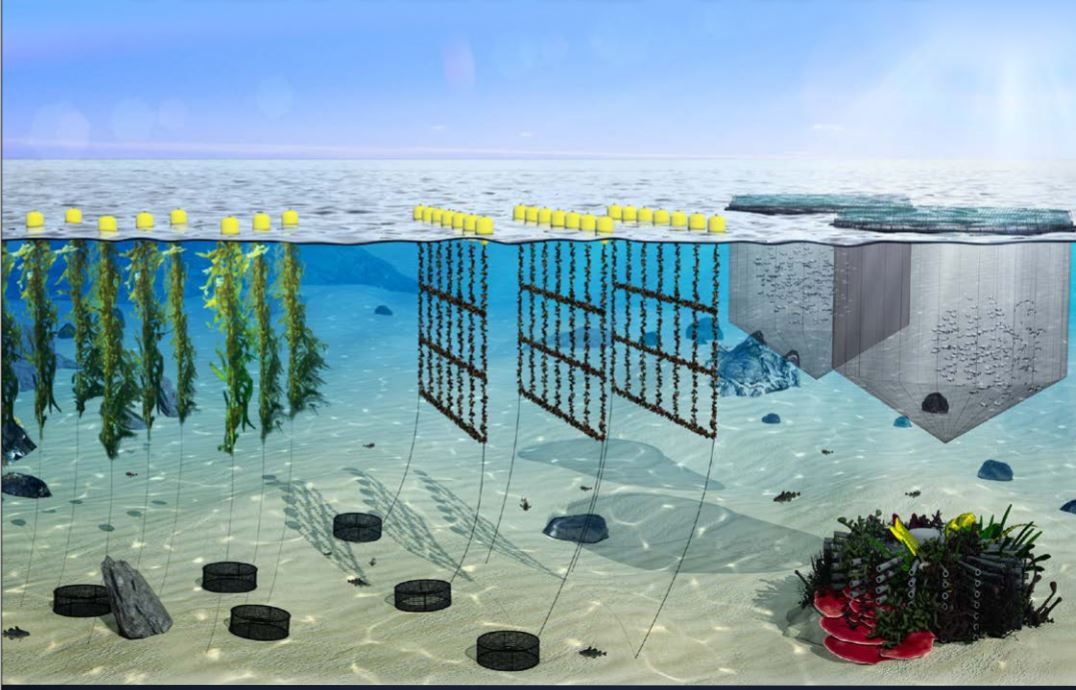In the realm of global food production, sustainable aquaculture stands out as a beacon of hope, not only for meeting the rising demand for seafood but also for empowering local economies. As we navigate challenges like overfishing, environmental degradation, and food security concerns, sustainable aquaculture emerges as a promising solution that fosters economic growth while preserving precious marine ecosystems.
Understanding Sustainable Aquaculture
Aquaculture, or fish farming, involves the cultivation of fish, shellfish, and aquatic plants in controlled environments such as ponds, tanks, and ocean enclosures. Unlike traditional fishing methods, aquaculture provides a controlled setting where the growth and development of aquatic species can be carefully managed.
Sustainability lies at the heart of modern aquaculture practices. By prioritizing environmental responsibility, social equity, and economic viability, sustainable aquaculture seeks to minimize its ecological footprint while maximizing benefits for local communities.
Economic Empowerment Through Aquaculture
One of the most significant advantages of sustainable aquaculture is its ability to stimulate local economies. In coastal regions and rural communities where traditional industries may be declining, aquaculture offers a lifeline by creating jobs, generating revenue, and supporting ancillary businesses.
Job Creation
Aquaculture operations require a diverse range of skills, from marine biologists and aquaculture technicians to marketing professionals and logistics experts. By establishing fish farms, hatcheries, and processing facilities, communities can provide employment opportunities for local residents, thereby reducing unemployment rates and fostering economic stability.
Revenue Generation
The economic impact of sustainable aquaculture extends beyond job creation. Fish and seafood cultivated through aquaculture can be sold locally or exported to international markets, generating revenue that flows back into the community. Whether it’s freshwater fish farms in rural villages or offshore aquaculture operations along the coast, these enterprises contribute to the overall prosperity of the region.
Diversification of Income Sources
For communities reliant on a single industry or natural resource, economic diversification is essential for long-term resilience. Sustainable aquaculture offers an opportunity to diversify income sources, reducing vulnerability to fluctuations in commodity prices or environmental conditions. By supplementing traditional livelihoods with aquaculture activities, communities can build more robust and sustainable economies.
Environmental Conservation and Stewardship
While economic empowerment is a crucial aspect of sustainable aquaculture, it must be balanced with environmental conservation and stewardship. Irresponsible aquaculture practices can lead to habitat destruction, pollution, and the depletion of wild fish stocks. To ensure long-term sustainability, aquaculture operations must prioritize environmental protection and adopt practices that minimize their ecological impact.
Conservation of Marine Ecosystems
Sustainable aquaculture emphasizes the preservation of marine ecosystems by minimizing pollution, preventing habitat destruction, and protecting biodiversity. Through responsible site selection, careful monitoring, and the implementation of best management practices, aquaculture operations can coexist harmoniously with the natural environment, preserving delicate ecosystems for future generations.
Resource Efficiency
Efficient resource utilization is another hallmark of sustainable aquaculture. By optimizing feed formulations, reducing water usage, and minimizing waste production, aquaculture operations can minimize their environmental footprint while maximizing productivity. Technologies such as recirculating aquaculture systems (RAS) and integrated multitrophic aquaculture (IMTA) further enhance resource efficiency, promoting sustainable practices across the industry.
Community Engagement and Stakeholder Participation
The success of sustainable aquaculture depends not only on sound environmental practices but also on meaningful community engagement and stakeholder participation. By involving local residents, indigenous communities, and other stakeholders in decision-making processes, aquaculture projects can foster a sense of ownership and responsibility, ensuring that economic benefits are equitably distributed and environmental concerns are addressed.
Conclusion
In conclusion, sustainable aquaculture represents a powerful tool for empowering local economies while safeguarding marine ecosystems. By creating jobs, generating revenue, and promoting economic diversification, aquaculture projects contribute to the prosperity and resilience of coastal communities around the world. However, achieving true sustainability requires a holistic approach that balances economic development with environmental conservation and social equity. By embracing the principles of sustainability and working collaboratively with stakeholders, we can harness the potential of aquaculture to build a more prosperous and resilient future for generations to come.
For more info: Friend of The Sea

